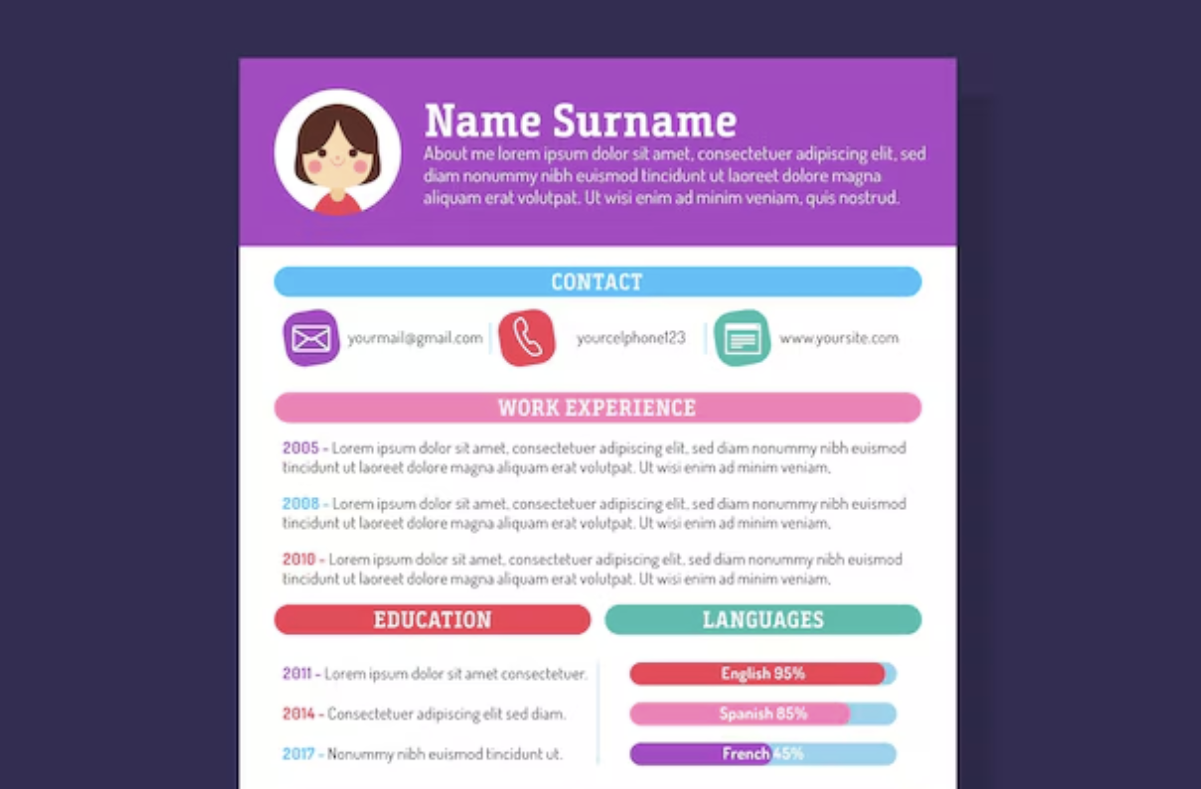Crafting a Winning CV as a Student with No Experience
As a student, transitioning from academia to the professional world can be daunting. One of the first steps in this journey is creating a compelling Curriculum Vitae (CV). Even without a wealth of professional experience, you can craft a CV that showcases your skills, potential, and dedication. Here’s a guide to help you create a standout CV:
1. Understand the Purpose of a CV
A CV is a comprehensive document that details your education, skills, experiences, and achievements. It serves as a marketing tool to introduce yourself to potential employers. Unlike a resume, which is often tailored to specific job applications, a CV provides a broader overview of your qualifications.
2. Choose a Suitable CV Format
While there are various CV formats, the most common for students are:
- Chronological: This format lists your experiences in reverse chronological order, starting with your most recent. It's ideal for students with a clear timeline of academic achievements.
- Functional: This format highlights your skills and experiences, rather than focusing on chronological order. It's beneficial for students with gaps in their work history or who want to emphasize transferable skills.
- Combination: This format combines elements of both chronological and functional formats, allowing you to showcase your most relevant experiences while providing a clear timeline.
3. Start with a Strong Contact Information Section
Place your name, email address, phone number, and a professional-looking LinkedIn profile link at the top of your CV. Consider including a personal website or portfolio if you have one.
4. Create a Compelling Summary or Objective Statement
This brief introduction should highlight your key skills, career goals, and what you can offer employers. For example:
- Summary: “Highly motivated student with a passion for [field of study]. Seeking an entry-level position to leverage strong [skills] and academic achievements in a dynamic work environment.”
- Objective: “To secure an internship in [field] to gain practical experience and apply theoretical knowledge while contributing to a collaborative team.”
5. Document Your Education
List all your education institutions that you have attended, degrees, majors, minors, and date of graduation, as well as relevant coursework and honors or awards that you received. You should include in this list your graduation date and expected graduation date if you are still studying for your degree.
6. Demonstrate Your Skills
Divide your skills section into two subcategories: Hard skills (technical abilities, e.g., software proficiency or languages) and Soft skills (interpersonal qualities, e.g., communication, teamwork, and problem-solving). Where possible, you should use numbers and percentages to quantify the skills you have for example, "Proficient with Microsoft Office Suite with advanced use of Excel").
7. Leverage Experiences
Even though you may not have any traditional work experience, relevant activities and experiences are to be a highlight. This might include, but not limited to:
- Part-time employment: List part-time employment, internships, volunteer work.
- Academic projects: State group projects with detailed descriptions of research papers and presentations.
- Extracurricular activities: Define clubs, organizations, or sports teams you have been a part of.
- Certifications: List any certification or licenses.
- Describe experiences using the STAR method: Situation, Task, Action, Result. Example :
- Situation: "Being a project leader in a group project, I coordinated a group of five students."
- Task: "Develop a mobile application for a local charity."
- Action: "Making a full timeline of the task and delegating appropriately to meet the deadlines, utilizing skills in project management"
- Result: "We launched an app; to our surprise, it crossed all the expectations we had set for raising money."
8. Customize Your Resume to Every Job Application
While your CV provides the overall synopsis of your qualifications, you need to tailor it to the specific application. Research the company and position, then pull out the skills and experiences most directly applicable to the job.
9. Thorough Proofreading
While a typos and small errors will not generally make a difference, they can have a negative impact on an application. Take the time to review your CV for all types of errors. Have a friend or mentor also review your CV for errors and oversights.
10. Keep It Concise
Aim for a CV that is one to two pages long. While it's important to include relevant information, avoid redundancy and unnecessary details.
Remember, your CV is your first impression on potential employers. By following these guidelines and showcasing your skills and potential, you can create a compelling CV that helps you stand out in the competitive job market.









